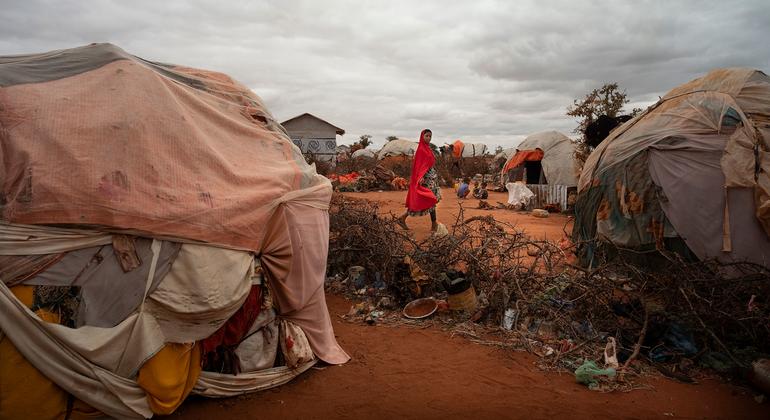Sure! Here’s the translation to American English:
—
The most devastating droughts in recent history have occurred in recent years, linked to climate change and the depletion of natural resources. This is revealed in a report from the United Nations Convention to Combat Desertification, the U.S. National Drought Mitigation Center, and the International Drought Resilience Alliance, which anticipates severe global impacts for the period from 2023 to 2025. Ibrahim Thiaw, the Executive Secretary of the Convention, has described drought as a “silent killer” that slowly drains resources and ruins lives.
Mark Svoboda, director of the National Drought Mitigation Center, describes the situation as “a slowly evolving global disaster, the worst I’ve seen,” emphasizing the need for systematic monitoring to assess the impact of drought on human lives, livelihoods, and vital ecosystems.
The crisis is particularly alarming in East and Southern Africa, where nearly 90 million people are facing acute hunger. In Zimbabwe, the worst drought on record has resulted in a 70% decrease in maize production compared to the previous year, leading to doubled prices. In Somalia, the impact has been deadly, with 43,000 drought-related deaths in 2022, and a quarter of the population facing critical food insecurity by early 2025.
Zambia is also in a critical situation, where severe drought has affected the flow of the Zambezi River, drastically reducing the capacity of its main hydroelectric plant, resulting in power outages of up to 21 hours a day. This situation has had a devastating effect on the local economy, closing hospitals and factories.
The effects of drought are not limited to Africa. In Spain, two years of drought have caused a 50% drop in olive harvests, doubling olive oil prices. In Turkey, over-exploitation of groundwater has led to the formation of sinkholes, threatening communities and infrastructure. Similarly, in the Amazon basin, historically low river levels have caused the death of endangered species and disrupted drinking water supply.
The Panama Canal has also seen a decline in water levels, complicating global trade and affecting soybean exports from the U.S., leading to shortages in UK supermarkets.
In the face of this growing crisis, the report offers several recommendations to mitigate its effects, such as implementing more robust early warning systems, real-time monitoring, utilizing nature-based solutions, building more resilient infrastructure, and fostering global collaboration in river basin and trade route management.
—
Let me know if you need anything else!
Referrer: MiMub in Spanish











